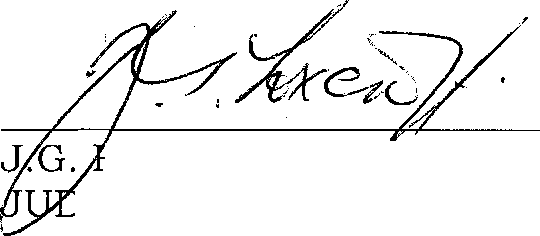IN THE SUPREME COURT OF SWAZILAND
HELD AT MBABANE APPEAL CASE NO. 62/2008
In the matter between:
SIBUSISO BOY BOY NYEMBE APPELLANT
and
PINKY LINDIWE NYEMBE (BORN MANGO) RESPONDENT
CORAM : FOXCROFT, JA
MAGID, AJA MASUKU, AJA
FOR THE APPELLANT : MR. A.M. LUKHELE
FOR THE RESPONDENT : MR. B.W. MAGAGULA
JUDGMENT
FOXCROFT, JA
[1] This is an appeal against the judgment of the Chief Justice dated 11th December 2008, granting a divorce
between the parties on the grounds of the appellant's adultery, ordering the appellant to forfeit any benefits of the marriage in community of property and ordering the appellant to pay maintenance to the respondent in the sum of E2,500 towards the upkeep of the minor child of the parties.
The appellant has lodged an application for condonation of the late filing of the Record of Appeal. This application is opposed.
The appellant avers that he was unable to place his attorney in funds to enable him to transcribe and prepare the record, but that it was always his intention to proceed with the appeal. He adds that there are "good prospects of appeal" and sets out a number of areas in which he maintains that the learned Chief Justice erred in fact and in law. No reasons are provided in his affidavit for these bald allegations. The application is supported by the appellant's attorney, Mr. Lukhele, who confirms that he was not placed in funds to enable him to prepare and lodge the Record on Appeal until August, 2009.
[4] The respondent answered these allegations in her opposing affidavit. She denied that the appellant was "unemployed", stating that as a businessman, he was self-employed and well able to afford his attorney's costs. She pointed out that the Record should have been filed by the end of February 2009 and was therefore seven months late in September. The Notice of Appeal was in fact filed on the 19th December, 2008 and the Record should therefore have been filed by the 18th February. A further ground for her opposition to condonation was her denial that the appellant has good prospects of success on appeal.
[5] Heads of Argument in respect of the condonation application are also before this Court. It is there submitted that the application is brought under Rule 16
(1) of the Court of Appeal Rules for an extension of time and that it is implicit in this subrule that reasonable prospects of success on appeal are not required in such an application.
This submission ignores Rule 30 (4) which provides as follows:-
"Subject to rule 16 (1), if an appellant fails to note an appeal or to submit or resubmit the record for certification within the time provided by this rule, the appeal shall be deemed to have been abandoned."
In my view, an extension of time means an extension of available time. Once the time allowed has elapsed the appeal is deemed to have been abandoned and any extension of time cannot assist. Condonation is dealt with in Rule 17, where the following appears
"Condonation.
17. The Court of Appeal may on application and for sufficient cause shown, excuse any party from compliance with any of these rules and may give such directions in matters of practice and procedure as it considers just and expedient."
What the appellant is really attempting is to reinstate his appeal which lapsed at midnight on the 18th February, 2009. Prospects of success are clearly relevant to reinstatement of an appeal.
Mr. Magagula who appeared for the respondent referred to the decision of this Court in UNITRANS SWAZILAND LIMITED v. INYATSI CONSTRUCTION LIMITED 1997 (as yet unreported) where Kotze P. said the following in relation to an application for condonation of the late filing of a record,
"As has already been pointed out, some of the delays which occurred in relation to the certification of the record were not the fault of the Appellant or its attorney. Nevertheless it must have become obvious to the
Appellant's attorney that it was necessary to apply without delay for condonation of the late filing of the Notice of Appeal and of the preparation of the record if only because of Mr. Dunseith's letter of 8 March 1996. The Courts have often held that whenever a prospective Appellant realises that he has not complied with a Rule of Court, he should, apart from remedying his fault immediately, also apply for condonation without delay."
The learned President of the Court also cited with approval the remarks of Centlivres, JA (as he then was) in the South African case of Bezuidenhout v. Dippenaar, 1943 A.D. 190. That case concerned a petition for the late filing of an application for leave to appeal at a time when the appeal had already lapsed. In that regard, Centlivres, JA said
"Whatever the position might have been if the applicant had applied for leave to this Court before the prescribed period of three months had elapsed, it seems to me that, in view of the fact that the appeal has already lapsed, the Court should not grant the applicant any form of relief if it is satisfied that there is no reasonable prospect of the appeal succeeding."
I can see no reason why the same principle should not apply in the present matter, where the appeal is deemed to have been abandoned.
In the UNITRANS case, this Court concluded that it would be unfair to the respondent to overlook the
"flagrant disregard for the rules exhibited by the appellant irrespective of the appellant's prospects of success on the merits of the matter".
[8] In a recent decision of this Court in OKH Farm (Pty) Ltd v. Cecil John Littler N.O. and Others, Civil Appeal Case No. 56/2008, an application for condonation of the late delivery of the appellant's Heads of Agreement, the initial delivery of an incomplete record and the subsequent late delivery of the complete record was considered. It was held that
"it is self-evident that a bad procedural case may be excused by a good appeal on the merits"
The procedural fault was not nearly so serious as in the UNITRANS case. In that matter a record was due on the 7th May, 1996 and only delivered in August, 1996. In the OKH Farm matter, the delay was nine days until a defective record was filed and a further two month delay before the record was corrected. The Court referred with approval, to a number of authorities in South Africa, which stressed the need to apply without delay for condonation, but then proceeded to consider the prospects of success on appeal eventually holding that these prospects were not nearly adequate to counterbalance the grave procedural inadequacies. In UNITRANS the Court had refused to condone the late filing of a record irrespective of the appellant's prospects of success on the merits.
[9] In Hezekiel Mthezuka Magagula v. Swaziland Government, Civil Appeal Case No. 31/ 1998 (unreported) Leon, JP dealt with a nine month delay in the lodging of an appeal record, remarking on the fact that
"there is nothing whatever said in the affidavit about whether or not there are any prospects of success on appeal whatever."
Despite the fact that the application for condonation was not opposed, the Court refused it.
[10] These cases show that this Court has been firm in insisting on proper compliance with Rule 30. Yet the delays still occur. I agree with Mr. Magagula's submission in his Heads of Argument, in dealing with the appellant's conduct, that
"Despite whatever difficulties that caused him not to prepare the record, be it lack of funds or other reasons, he should have immediately, when he became aware that he would not be able to prepare the record, approached this Court and sought condonation, placing all facts before Court."
What is more, the attorney dealing with the matter should at the very least have written to the Registrar of this Court before the expiry of the permitted two month period, explaining his difficulty. He was, after all, the attorney of record.
[11] Apart from reciting the Grounds of Appeal in the condonation application, no proper reasons are given as to why there are any prospects of success on appeal. In my view the procedural defects in this matter are more serious than in the OKH Farm case, and the prospects of success on appeal almost negligible. Even if the appellant were to persuade this Court on appeal that the medical record adduced by the respondent to show that the appellant was the father of a child born to one Manica Dlamini should not have been treated as evidence of adultery, there was a great deal of other evidence of adultery which the trial Court accepted. Can the appellant seriously contend that he wishes to remain married to the respondent, or that he cannot pay the maintenance awarded to his child? I do not think so, on the evidence.
[12] Accordingly, the application for condonation is dismissed with costs, and the appeal is struck off the roll of this
Court.




I agree
T.S. MAS! ACTING<JfUDXxE OF APPEAL
I agree
JUDGMENT DELIVERED IN OPEN COURT ON 20™ NOVEMBER 2009